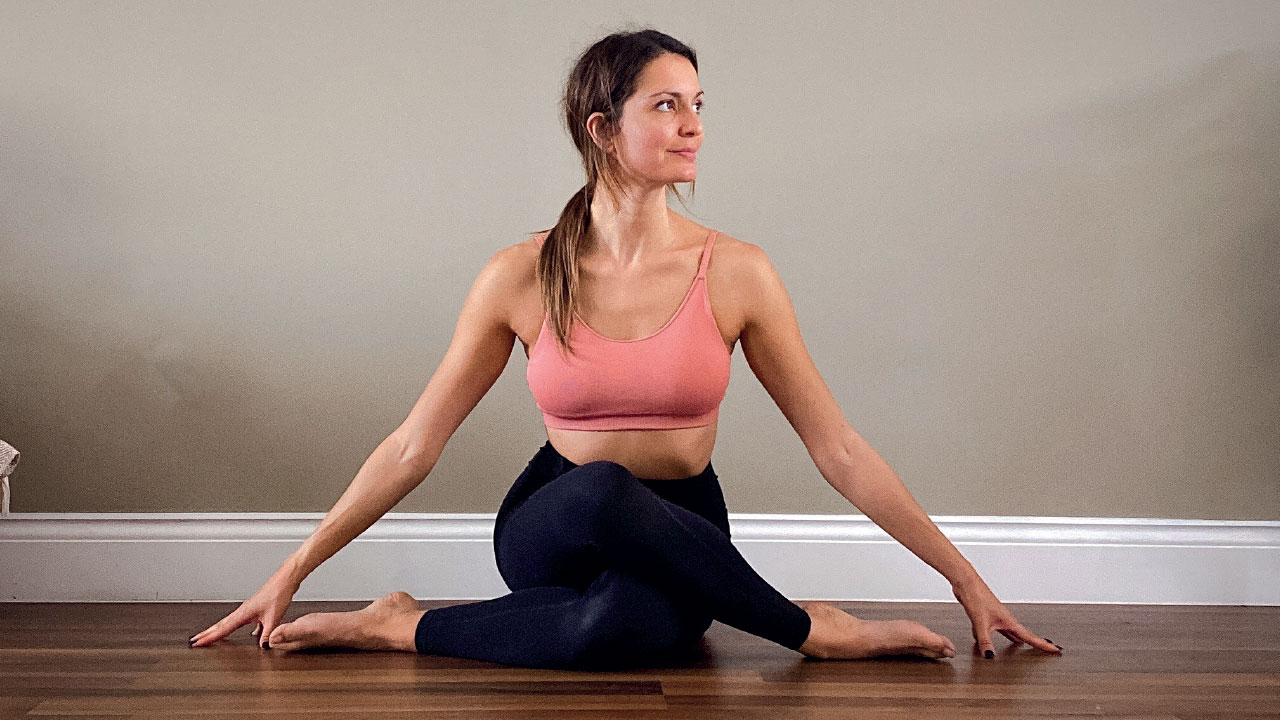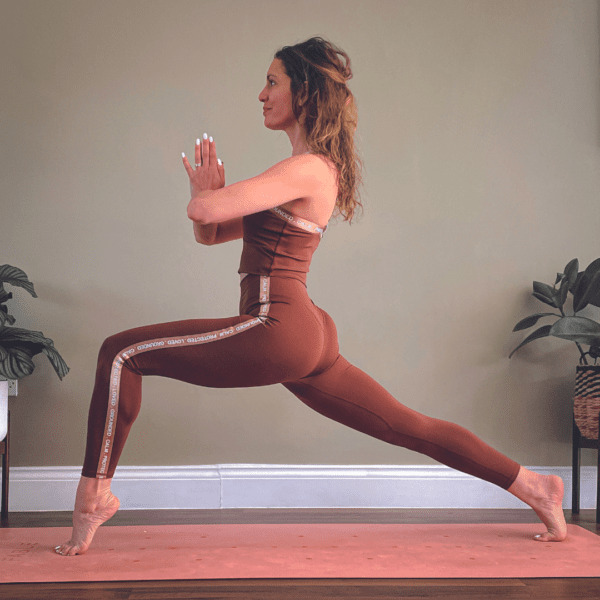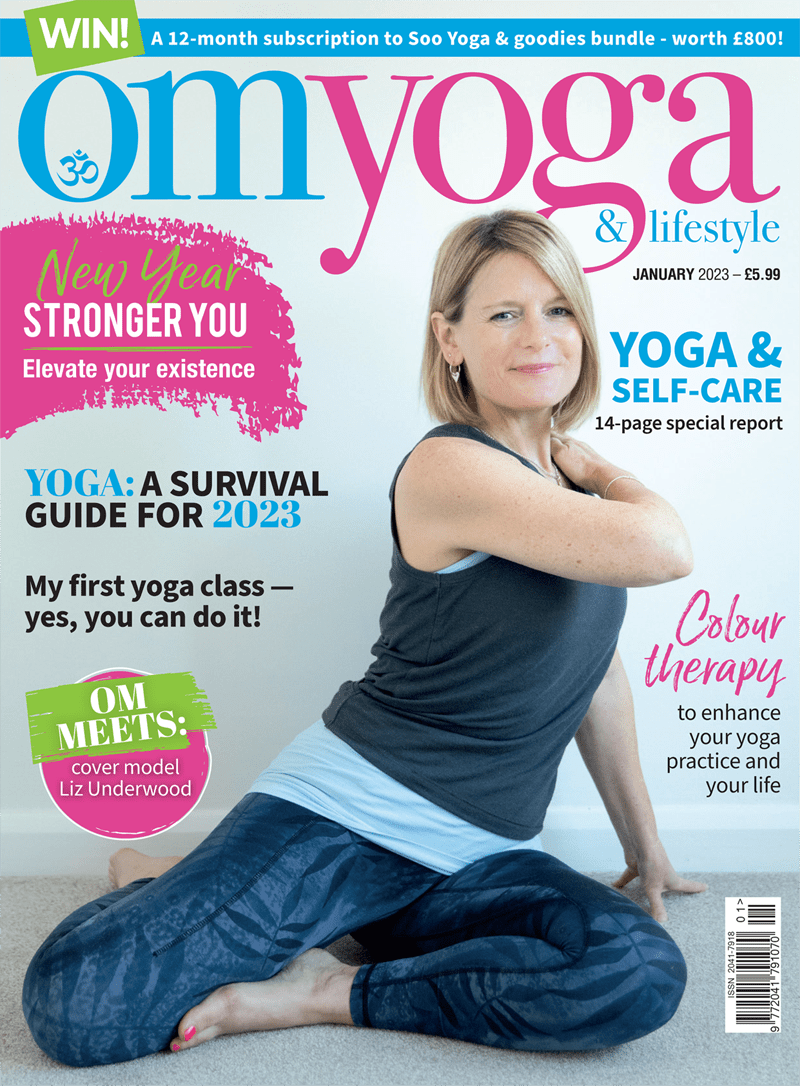
Yoga, self-care and me
Yoga teacher, Esther Marie, explains in her own words how her practice evolved to embrace self-care and self-love above and beyond asana practice in the face of physical health challenges
In 2016, a year into my yoga practice, I was told by a physio that if I continued to practice the way I was, then I would end up in a wheelchair by the time I reached my mid-forties. Due to having both hypermobility syndrome and fibromyalgia, she told me that if I wanted to continue my yoga journey, I had to figure out a way to practice yoga with functionality and accept that my body has limits and barriers.
Despite feeling panicked by the severity of her statement, it also became my driving force and determination to find a safer, more adaptable way to continue practicing and learning yoga and one day becoming a teacher. That was six years ago.
Since that time, through practicing yoga and taking my yoga teacher training (2017/18) I have created a very holistic approach to my practice, which underpins all of my teaching and classes. When you have a condition that is invisible on the surface, going to a public yoga class can feel terrifying and intimidating. I know through my own experience there were times when teachers assumed my range of movement was a good thing and encouraged or adjusted me to go deeper; but this caused pain.
My yoga doesn’t follow the rules of a typical vinyasa sequence that I was taught and trained in because it’s not what my body needs. I incorporate my body-weight strength and stability training from my physio into my yoga practice. I incorporate my fascia release into my yoga practice. I include my meditation, mindfulness and journaling into my yoga practice.
Students with varying degrees of yoga experience attend my classes and many of them have chronic pain elements or conditions that restrict their bodies to access certain postures, so I offer a multitude of variations. This is something I wish I had experienced when I was attending public classes at the beginning of my yoga journey, and is something I pride myself on as a teacher. Offering alternative postures — and even creating hybrid postures of my own, like baby warrior III, baby boat, anchored boat, supported plank — provides a variety of options so my students always feel encouraged, suitably challenged and positive about their own practice.
Yoga is a practice to be experienced and done in a way that suits the individual. No two bodies are the same, therefore I do not believe that any two yoga practices should look the same.

Every time I have a pain flare-up, my practice keeps me humble and has taught me that how I treat myself through these more challenging and debilitating times is still yoga. Just because I haven't made it to my mat, doesn't mean I am not practicing yoga.
Being able to embody yoga in this way is vital in my opinion to anyone who practices with a chronic condition of any sort, because it offers whole self-kindness and a way to navigate life in a mindful, compassionate way.
For example, if I am to honour ahimsa, the first Yama, meaning non-harm, this means that I will not go to the full range of my body’s mobility, as I know it would not be beneficial for my body. I would not be practicing yoga if I caused harm to my body, so I find my edge and accept this is where I am to stay.
I know many people disregard the idea of starting a yoga practice or believe they can’t practice it because they are not flexible enough. However, this is not the case. Yoga truly is an inclusive and accepting practice available for everybody and it is my aim to share this message and my way of practicing with as many people as I can. I I believe my condition was meant for me so I could help support and lead others with chronic pain, fatigue, anxiety, depression and other vulnerabilities to find their own empowering way to practice.
My biggest piece of advice to anyone who can relate to my story is to explore the eight limbs of yoga. Within these texts you can gain so much understanding of why and how yoga works to support oneself in a way that exceeds just the body and a class on a mat. If you want it to, yoga can weave its way seamlessly into your everyday life. It can offer you guidance even in this modern, chaotic world of today…through yoga’s principles of mindfulness, physiological approach to regulating the nervous system, deep inner self-discovery and path to sacred self-care.
On a personal level, yoga has taught me life lessons I never thought possible. I have
battled with mental health issues since the age of just 14 and was in psychotherapy for over a decade to help me heal from grief, anxiety, depression and find my happiness and strength to fully accept myself. It was yoga philosophy that enabled me to fully finish my path and find my healing. Yoga has taught me how to focus my mind, flip my perspective, understand myself, the world, and others, giving me a deep appreciation for my body and the strength to face each day with a grateful heart.
Yoga has enabled me to find a gentler, more loving and compassionate way to live my life, move my body and, most importantly, find unconditional acceptance with who I am and the body I have.
Esther Marie is a yoga teacher based in Surrey (esthermarieyoga.com/@esthermarieyoga )




